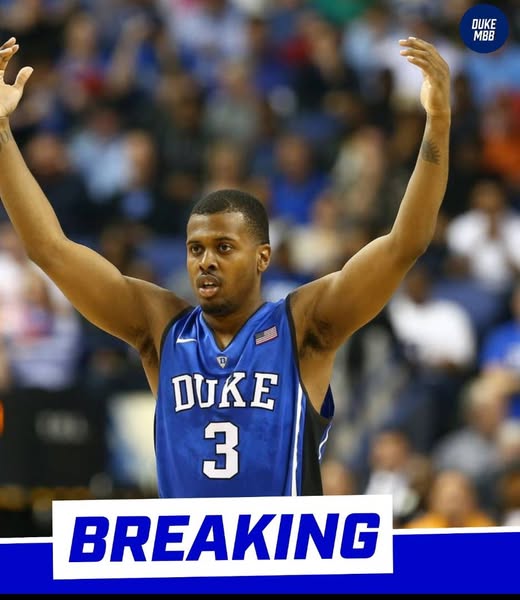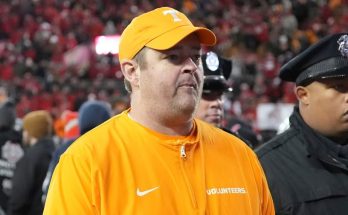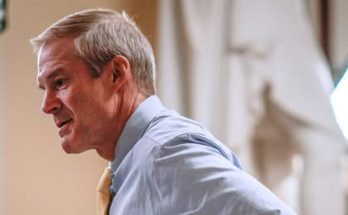DURHAM, N.C. — In a move that encapsulates the very essence of Duke’s rich basketball tradition, the program has officially welcomed back former Blue Devil Tyler Thornton as an assistant coach on Jon Scheyer’s staff. For those familiar with Duke Basketball, this isn’t just another addition to the coaching bench — it’s the return of one of the Brotherhood’s most respected members, and it speaks volumes about what the program continues to represent under Scheyer’s leadership.
Thornton, a gritty guard known for his defensive tenacity and unshakeable poise during his four-year playing career at Duke (2010–2014), brings full-circle a journey that was written into the Blue Devil fabric from the moment he first committed to play under Hall of Fame coach Mike Krzyzewski. His return is not only timely — it’s symbolic. It signals Duke’s long-standing tradition of elevating its own and investing in individuals who exemplify leadership, loyalty, and a deep love for the game.
Why Thornton? Why Now?
In the era of the transfer portal, NIL deals, and rapid coaching turnover, Jon Scheyer’s decision to bring Tyler Thornton back into the fold isn’t just about nostalgia — it’s strategic. Duke Basketball has always leaned into its “Brotherhood” ethos, but Scheyer is now making it a foundational pillar of how the Blue Devils operate in the post-Krzyzewski era.
“Tyler embodies everything we want in a coach,” Scheyer said in the official release. “He’s intense, he’s sharp, and most of all, he understands what it means to wear that Duke jersey. I’ve coached him, I’ve played with him — and I’ve watched him develop into a phenomenal leader and mentor. Bringing him back was an easy decision.”
For Scheyer, it’s more than sentiment — it’s about building a coaching tree that grows from the very same roots that produced national championships, All-Americans, and NBA superstars. In recent years, Duke has lost several staffers to head coaching gigs or NBA positions. The need to restock the bench with individuals who already understand the culture, the expectations, and the relentless work ethic required to succeed at Duke is paramount. Thornton fits the bill perfectly.
The Player: Steady, Selfless, and Fearless
Tyler Thornton’s stats may not have lit up the box scores during his Duke playing career, but his impact transcended numbers. He was the type of player who dove on loose balls, made timely passes, and hit big shots when it mattered most. Fans will never forget the two clutch three-pointers he drained against Kansas during the 2011 Maui Invitational — shots that helped seal a high-profile win and demonstrated his knack for stepping up in big moments.
Thornton started 53 games over his four-year career and appeared in 139 total contests. His role often fluctuated, from bench spark to defensive stopper to vocal floor leader. But no matter the assignment, Thornton executed it with discipline, pride, and a selfless team-first mentality that made him a coach’s dream.
He was named a team captain his senior year, a title he earned not through gaudy statistics, but by setting the tone in practices and earning the unwavering trust of both his teammates and coaching staff.
The Coach: Building a Resume the Duke Way
After graduating in 2014 with a degree in psychology, Thornton briefly pursued professional basketball before pivoting into coaching — a decision that many around the Duke program saw coming years before it happened.
His coaching career began under another former Blue Devil, Steve Wojciechowski, at Marquette, where he served as a graduate assistant. It was here that he began to build the foundation of his coaching identity — meticulous, observant, and always placing development above ego.
But his true breakthrough came at Howard University, where he joined another member of the Duke Brotherhood, Kenny Blakeney, on the Bison coaching staff. Thornton served as assistant coach and director of player development, helping transform Howard from a MEAC afterthought into a conference powerhouse. Under his guidance, the Bison reached back-to-back NCAA Tournaments in 2023 and 2024, marking one of the most successful stretches in the program’s modern history.
Thornton’s work at Howard was lauded for both its tactical acumen and its emotional intelligence. He connected with players on a personal level, pushed them to develop beyond their perceived limits, and built a reputation as one of the most promising young assistant coaches in Division I basketball.
“Tyler gets it,” Blakeney said in a recent interview. “He knows how to communicate with players, how to push them, how to motivate them. He’s got a way of making guys believe — and that’s the hardest thing to teach.”
Fulfillment of a Dream
Thornton’s return to Duke was not just professional — it was personal. According to his own account on Duke’s “Brotherhood Podcast,” one of the very first things he told Coach K during his recruitment as a teenager was that he wanted to one day return to Duke as a coach. That aspiration has now become a reality.
“It feels surreal,” Thornton said. “When I was 17 and told Coach K I wanted to coach here one day, it felt like a dream. To walk back into that locker room, to sit in the same coaches’ meetings where I used to listen as a player — it’s emotional. But more than that, it’s motivating. I’m here to give back to a place that gave me everything.”
Thornton’s story is proof of Duke’s holistic approach to player development — not just as athletes, but as leaders, educators, and thinkers. His trajectory also serves as inspiration for current players, some of whom may one day pursue coaching themselves.
A Staff Steeped in Brotherhood
Thornton joins a Duke staff that is increasingly populated by former players, a testament to Scheyer’s vision for continuity and culture. The current staff includes Scheyer himself, former Blue Devil Amile Jefferson, and now Thornton — all players who were shaped by the Krzyzewski era and are now tasked with writing the next chapter of the program’s legacy.
For recruits and families, this means something. In an age where college basketball is often marked by short-term thinking and transactional relationships, Duke is doubling down on loyalty, long-term development, and mentorship. Thornton, who lived the Duke experience as both player and student, now brings the full force of that understanding into recruiting visits, practice plans, and game preparation.
On-Court Impact and Responsibilities
As an assistant coach, Thornton is expected to play a central role in player development, with a specific emphasis on guard play and defensive philosophy. His no-nonsense style, rooted in grit and fundamentals, is expected to complement Scheyer’s modern offensive schemes and analytical approach.
Thornton will also be instrumental in scouting, recruiting, and mentorship — especially as Duke continues to bring in top-tier recruits who need help adjusting to the college game. His presence on the sideline serves as a living blueprint for how to succeed at Duke, even without a starring role.
“Tyler is the bridge between generations,” said a source close to the program. “He’s young enough to relate to today’s players, but steeped enough in Duke history to remind everyone what this place is about.”
The Road Ahead
Duke is once again projected to be a national contender this coming season, with a mix of elite freshmen, veteran returners, and transfer talent poised to make noise in March. Thornton’s addition bolsters not just the Xs and Os, but the internal drive that has always separated Duke from the rest.
In many ways, this hire is about staying grounded in identity. As the landscape of college basketball becomes increasingly volatile, Duke remains anchored by its Brotherhood. It’s a bond forged not only through wins and banners, but through values that span generations.
Tyler Thornton is back — not just as a coach, but as a keeper of that bond. And if his coaching mirrors his playing days, the Blue Devils are getting more than just an assistant.



